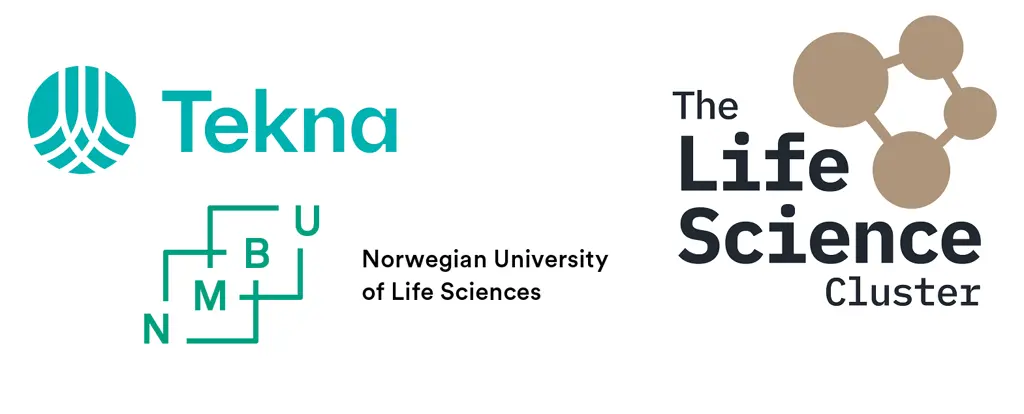Norwegian salmon exports is targeted for a 5x increase within 2050. At the same time, we know that 70% of CO2 emission from farmed salmon is linked to feed. The need for more sustainable food production at sea and on land opens up new industrial growth areas for Norway. Wood, organic waste and other biobased materials and their side streams are an untapped resource. By using microorganisms, enzymes or chemicals, these materials may be turned into new foodstuffs, feed, pharmaceuticals, fuel or other materials.
Program
- Introduction
Solveig Fossum-Raunehaug, acting director of research and innovation at NMBU - Biocatalytic conversion of wood to microbial biomass
Professor Svein Jarle Horn, NMBU - How do we do it? Replacing soy with microalgae in animal feed
Dag Hjelle, Folvengaard - From sea to shake: Marine peptide power
Diana Lindberg Senior Scienctist Product Development, R&D, Protein, Aker Biomarine - Making business of biorefining,
TBA - Investing in biorefining
Øyvind G. Schanke, Chief Investment Officer (TD Veen) - Questions and answers
The Life Science Cluster
This breakfast meeting is also a part om the NMBU meeting-series “From idea to Success”. The meeting series is a part of the project Entreprenørskapslandsbyen Campus Ås. The project is a collaboration between NMBU, Entreprenørskapslandsbyen Campus Ås, Ard Innovation (TTO) and Aggrator (Incubator). All these actors are a part of the innovationsystem at Campus Ås. The project is financed by Viken Fylkeskommune.
This seminar is a collaboration between Tekna, The Life Science Cluster and the NMBU-project mentioned above.





